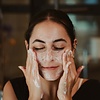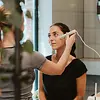100% Certified Natural Cosmetics: Truth or Lies in the Beauty Department?

Have you ever questioned if the "100% Certified Natural" labels on your favourite beauty products are genuinely authentic? Natural cosmetics are having a major moment, with brands scrambling to tout themselves as nature's gift to skincare. Slogans like "100% Certified Natural Cosmetics" or "100% Certified Effective Natural Cosmetics" are plastered on many products. But do these claims hold water?
Let's deconstruct the marketing jargon. These catchy phrases aim to build consumer trust, but they don't always equate to a product that's entirely natural. The operative word is "certified." While this signifies the product meets a specific standard for natural cosmetics, it doesn't reveal how much of the product is actually derived from nature. Some certifications allow a small percentage of synthetic ingredients, like preservatives, to sneak in.
The Greenwashing Game: How Brands Play with Words
Many big brands are masters of "greenwashing" which is the process of making items appear more natural or eco-friendly than they actually are. They cleverly use certifications and buzzwords like "plant-derived," "eco-conscious," and "clean beauty" to create an illusion of purity, while their ingredient lists often tell a different story.
For example, some companies leverage certifications like BDIH or COSMOS to make broad claims about their products. One well-known brand even says on its website, "We adhere to the BDIH and Cosmos guidelines and can therefore call ourselves 100% certified natural cosmetics." This remark, while technically accurate in terms of meeting certification requirements, can be misleading to consumers who might interpret it as meaning the product is entirely free of synthetic ingredients.
The Limits of Certifications
While certifications like Ecocert, BDIH, NATRUE, and COSMOS set some standards for natural content, they often have loopholes. For example:
- Ecocert (France): Allows up to 5% synthetic chemicals.
- BDIH (Germany): Allows certain synthetic ingredients like acids, bases, and salts, which some may argue don't align with a truly natural approach. It also doesn't mandate that all plant-based ingredients be organic.
- NATRUE (Europe): Permits the use of "nature-identical" preservatives, which are chemically identical to substances found in nature but are produced through chemical synthesis. This raises questions about what truly constitutes a "natural" ingredient.
- USDA Organic (USA): Up to 5% non-organic ingredients can be used if organic alternatives aren't available.
- Soil Association (UK): Allows certain non-organic ingredients deemed necessary.
- COSMOS (Europe): While high-standards, still permits some synthetic chemicals.
These certifications may prohibit animal testing, but most don't have strict criteria for the environmental impact of the manufacturing process. Additionally, EU standards like these factor water into the calculation of natural content, making it easier for water-heavy products like shampoos to qualify as "natural." Some certifications might also prioritize certain criteria (like organic farming) over others (like the absence of all synthetic ingredients).
The "Almost Natural" Trap: Why That Missing Percentage Matters
You might have seen products boasting "98% natural" or "99% natural" ingredients. But what about that remaining 1% or 2%? That seemingly small percentage can make a significant difference in a product's formulation, stability, and cost, often hiding synthetic preservatives and other questionable ingredients.
In that missing percentage, you might find:
- Synthetic preservatives: They allow products to last for many years on the shelf, unlike truly natural formulations that typically have shorter lifespans due to the absence of synthetic stabilisers. While necessary for extending a product's shelf life, some preservatives can be potential irritants or allergens. Additionally, some synthetic preservatives have raised concerns over potential health risks, including hormone disruption and even carcinogenic effects, although more research is needed.
- Artificial fragrances: These can mask unpleasant smells from other ingredients, but they can also trigger sensitivities or allergic reactions.
- Synthetic colors: Used to make products look more appealing, these can be derived from petrochemicals and may have questionable safety profiles.
- Petroleum-derived ingredients: While technically derived from natural sources (fossil fuels), these are highly processed and can have negative environmental impacts.
At Brewing Beauty, we believe that every ingredient matters, especially when it comes to what you put on your skin. That's why we go above and beyond these "almost natural" claims and commit to using 100% natural ingredients in all our products, including natural preservative systems that are gentler on your skin and the environment. We don't believe in compromising on quality or purity, even when it comes to the smallest percentage.
Replacing synthetic ingredients with natural alternatives often requires extensive research and development, adding to production costs and impacting the product's texture and consistency. This commitment means our products typically have shorter shelf lives compared to those with synthetic additives.
However, we believe this is a worthwhile trade-off for the health of your skin and the planet. We dedicate considerable time and resources to create natural products that are both effective and feel luxurious on your skin.
We believe that your skin deserves the best, and that means avoiding any potentially harmful or questionable ingredients. Our commitment to 100% natural formulations ensures that you're getting the purest, most nourishing skincare possible.
Regulations, Certifications, and the Future of Natural Cosmetics
We welcome all initiatives that aim to promote healthier and environmentally friendly products. In our opinion, harmonized standards for natural and organic cosmetics are essential to avoid greenwashing. We're encouraged to see that Europe has taken a step forward to define anti-greenwashing rules in a new directive. However, we also hope they will address the issue of certifications, as certification bodies currently have wide discretion in setting standards. Without further regulation, the problem of greenwashing can persist, hidden behind these certificates.
While these directives will help control large companies' ability to make unsubstantiated claims, the high cost of certifications may create an unfair competitive environment, favoring those with larger budgets. Smaller brands, genuinely committed to natural ingredients, might be excluded due to the financial burden of obtaining these certifications. We hope that policymakers will consider this concern and work towards a more equitable system for all brands, fostering a level playing field where quality and transparency take precedence over marketing budgets.
The abundance of different certifications and corresponding colourful logos on cosmetic products can be overwhelming and confusing for consumers. Even as industry professionals, we often struggle to keep up with the varying criteria and standards. It's unfair to expect consumers to decipher the meaning behind each certification logo, and this confusion can lead to misguided purchasing decisions.
We envision a future where a single, harmonized standard for natural cosmetics exists, making it easier for consumers to identify truly natural products without needing to decode a complex system of certifications. This would create a level playing field for all brands, regardless of their size or budget, and empower consumers to make informed choices based on ingredient lists and a clear understanding of what "natural" truly means.
Why Brewing Beauty Goes Beyond Certifications
At Brewing Beauty, we believe in genuine natural cosmetics without compromise. We don't chase after certifications, as many of their standards don't meet our rigorous requirements for natural purity. Additionally, the certification process can be costly and time-consuming, resources we'd rather invest in research and development, and sourcing the highest quality natural ingredients.
We prioritize transparency through our ingredient lists, which clearly display all the natural components we use. We believe in letting our products speak for themselves, rather than relying on marketing slogans or colorful certifications.
Beyond the Label: Embracing True Transparency
So, the next time you see that '100% Certified Natural' label, will you take it at face value, or will you dig deeper? The choice, and your skin's health, is yours.
Don't be fooled by greenwashing tactics and misleading certifications. At Brewing Beauty Company, we're committed to authentic natural beauty, no compromises. We invite you to explore our products and experience the difference for yourself.







